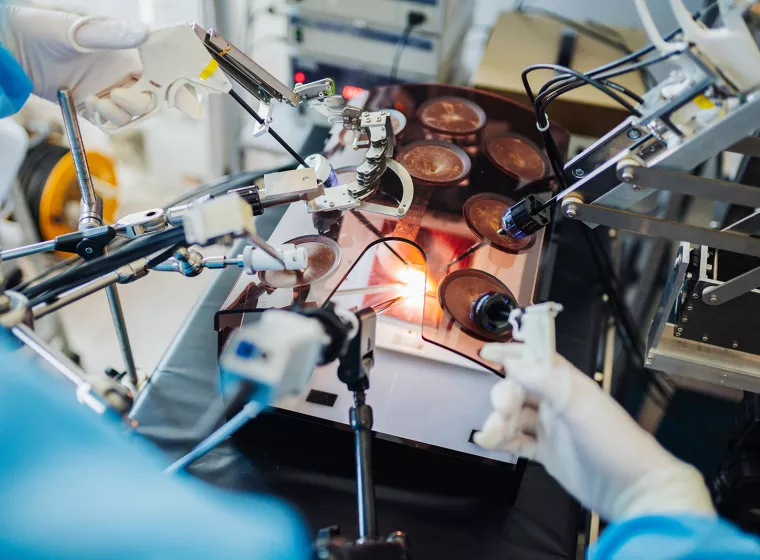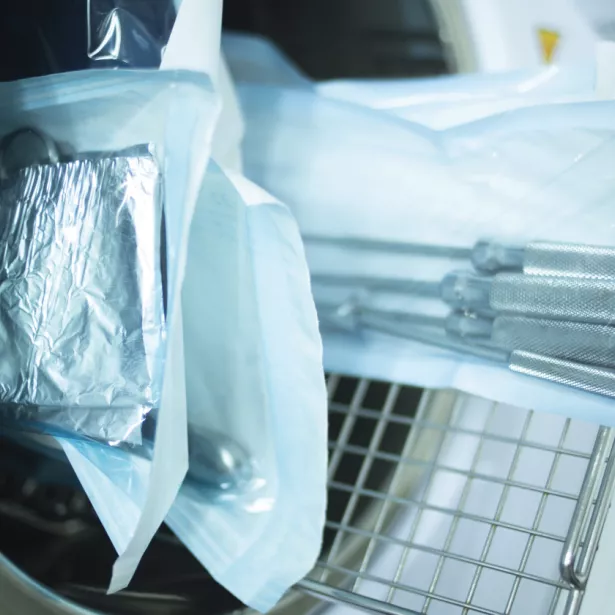February 17, 2022
How to prepare for FDA's planned transition out of COVID-19 enforcement policies
At the end of 2021, the U.S. Food & Drug Administration (FDA) issued a draft guidance describing its transition plan for medical devices currently covered under enforcement policies issued during the COVID-19 public health emergency.
The goal of this guidance is to provide FDA's recommended phase transition process for medical devices that have entered the market during the pandemic as a result of the various enforcement policies that have been issued (e.g., air purifiers, disinfectant devices, imaging systems, PPE, ventilators, remote monitors, thermometers, infusion pumps, etc.).
In addition to this draft guidance for medical devices currently covered under enforcement policies, FDA also issued a separate draft guidance to provide a transition plan for medical devices that entered the market during the COVID-19 public health emergency under an Emergency Use Authorization (EUA).
FDA's efforts in responding to the COVID-19 public health emergency continue to evolve and may change more over time. Nevertheless, FDA's draft transition plan guidance serves as a reminder that their COVID-19 enforcement policies are intended to be temporary and will eventually end.
As those enforcement policies sunset, FDA will expect that medical device companies relying on those policies will transition to normal operational compliance with all relevant regulations for their products. Medical device companies that engage this process early stand a better chance of comfortably completing their transitions within the required time.
A three-phase process
The draft guidance identifies three implementation phases with individual timeframes:
- implementation of the guidance (contingent upon expiration of the public health emergency);
- 90 days after implementation; and
- 180 days after implementation.
At the end of these phases, the device specific enforcement policies will be withdrawn. The draft guidance provides details to allow medical device manufacturers and other stakeholders to adjust their operations and enable availability of these specific devices after the public health emergency is over while being compliant with applicable statutory and regulatory requirements.
Specific regulatory requirement expectations are outlined for each of the phases to guide manufacturers in their decision-making process. Medical device companies can also engage with FDA through the Q-Submission (Q-sub) Program to develop unique plans for their specific circumstances if needed. The draft guidance includes four examples of devices intended to stay in the market and timing of relevant requirements and regulatory submissions (or amendments), as applicable.
Time and resources
FDA's draft guidance provides an initial perspective on what a suitable transition framework might look like for a given medical device or medical device category. Although the particulars of this guidance may be revised in advance of eventual finalization, it is important for medical device companies to begin developing the strategic and technical elements of their transition plans now if such efforts have not already been developed.
For many companies, the present moment also represents a good time to revisit transition plans that were initially developed early in the public health emergency. This is especially important given the level of effort and complexity that such transitions may require, as well as other factors that may impact transition timing, such as the availability of FDA personnel to discuss transition-related matters via Q-subs.
Given the number of devices being marketed under FDA's temporary enforcement policies, it is likely many companies will require assistance within a relatively limited timeframe to plan and execute strategies aimed at assuring QMS compliance, perform appropriate testing, support formal meetings with FDA, and prepare pre-market submissions. As such, medical device companies may be well served by identifying the required transition activities now and planning to add resources appropriately where necessary.
How Exponent Can Help
Exponent's scientific and regulatory professionals can help manufacturers of medical devices marketed under FDA's temporary enforcement policies navigate the transition to compliance. Our consultants have prior experience working at FDA and medical device companies, and our team includes dedicated subject matter experts across fields relevant to transition planning, including experts in biomedical engineering, software, toxicology, microbiology, epidemiology, chemistry, diagnostics, statistics, data science, human factors, materials science, and regulatory affairs.
Exponent also supports clients with their premarket submissions by designing and monitoring nonclinical studies, performing customized laboratory testing related to biocompatibility, and assessing biological and toxicological risk.
What Can We Help You Solve?

Regulatory Compliance for Medical Products
Experienced regulatory support for medical devices, pharmaceuticals, and combination products.

Biomedical Engineering & Sciences
Evaluate the performance of biologics, biomaterials, medical devices, and combination products.

Life Sciences & Healthcare
Whether you're developing a novel drug, a sturdier stent, or a faster flu test, you need clear answers to complex questions, quickly. Exponent delivers.
![Biologics [BES]](/sites/default/files/styles/hero_teal/public/media/images/GettyImages-1345289043.jpg.webp?itok=NrTwVEo1)





